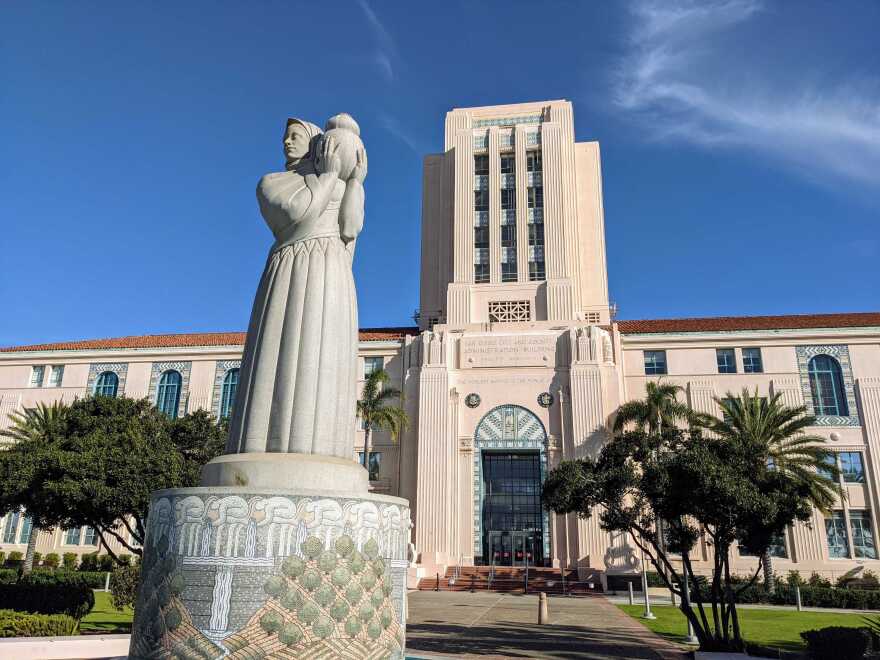San Diego County has retained an outside law firm to investigate alleged misconduct within the Public Defender’s Office, according to a letter obtained by KPBS.
The San Diego law firm Meyers Nave sent the letter last month to current and former deputy public defenders, asking them to be interviewed as part of an investigation.
“The purpose of this letter is to inform you that the County of San Diego Board of Supervisors and the County Office of Ethics and Compliance have received complaints against several county employees alleging unprofessional conduct, unlawful discrimination, and retaliation, among other things in the Office of the Public Defender,” the letter stated.
“The county takes these types of complaints seriously and has commenced a fair and impartial fact-finding investigation into these allegations to determine whether they have merit.”
County supervisors and administrative officials either did not return emails seeking comment or declined to be interviewed about the matter. A call to Meyers Nave was not returned.
The inquiry was opened weeks after a San Diego County Superior Court jury found in January that the Public Defender’s Office failed to stop discrimination and retaliation against former Deputy Public Defender Zach Davina for his gender expression before firing him in late 2020. The jury awarded Davina, who is gay, $2.6 million for emotional suffering and lost income.
The county chose not to appeal that verdict and actually increased the jury award to nearly $3 million to cover Davina’s legal fees, according to his lawyer Chris Ludmer.
Last month, the county settled another lawsuit filed by former Deputy Public Defender Michelle Reynoso for $900,000. Reynoso had alleged, in part, that she was fired from the office in 2020 because of her work during her private time with Black Lives Matter.
Both Davina and Reynoso also alleged that they were targeted by public defender management because they complained about a supervisor’s alleged belittling comments to a Black and Latino attorney after he spoke of how lawyers of color in the office felt alienated.
That same supervisor, after being alerted of the complaints against her, then sat on the tenure review committee for Davina and Reynoso, according to the lawsuits.
Davina’s trial exposed other misdeeds in the Public Defender’s Office.
San Diego County Public Defender Randy Mize testified that he knew an HR investigative report looking into accusations of discrimination and harassment in the office contained false statements, court transcripts show. But, he admitted signing the report anyway.
The false statements came from four of the five supervisors who were on Davina’s tenure review panel.
In addition to the lawsuits, KPBS confirmed that the county received multiple whistleblower complaints with similar allegations.
Davina said the independent investigation is overdue. He said he and his former colleagues had recommended launching an investigation nearly three years ago.
“We thought it was important to get a fair, third-party perspective,” Davina said. “Now it seems like the only way they (the county) would take it seriously is through litigation.”
Ludmer, who also represented Reynoso, was heartened that county supervisors hired an outside law firm to investigate the allegations. Ludmer had called for such a probe the day after the jury reached a verdict in the Davina case.
“I think the Board of Supervisors should be applauded for doing that,” he said. “It’s not an easy decision to make. I hope the firm will be independent, critical and hard hitting.”







